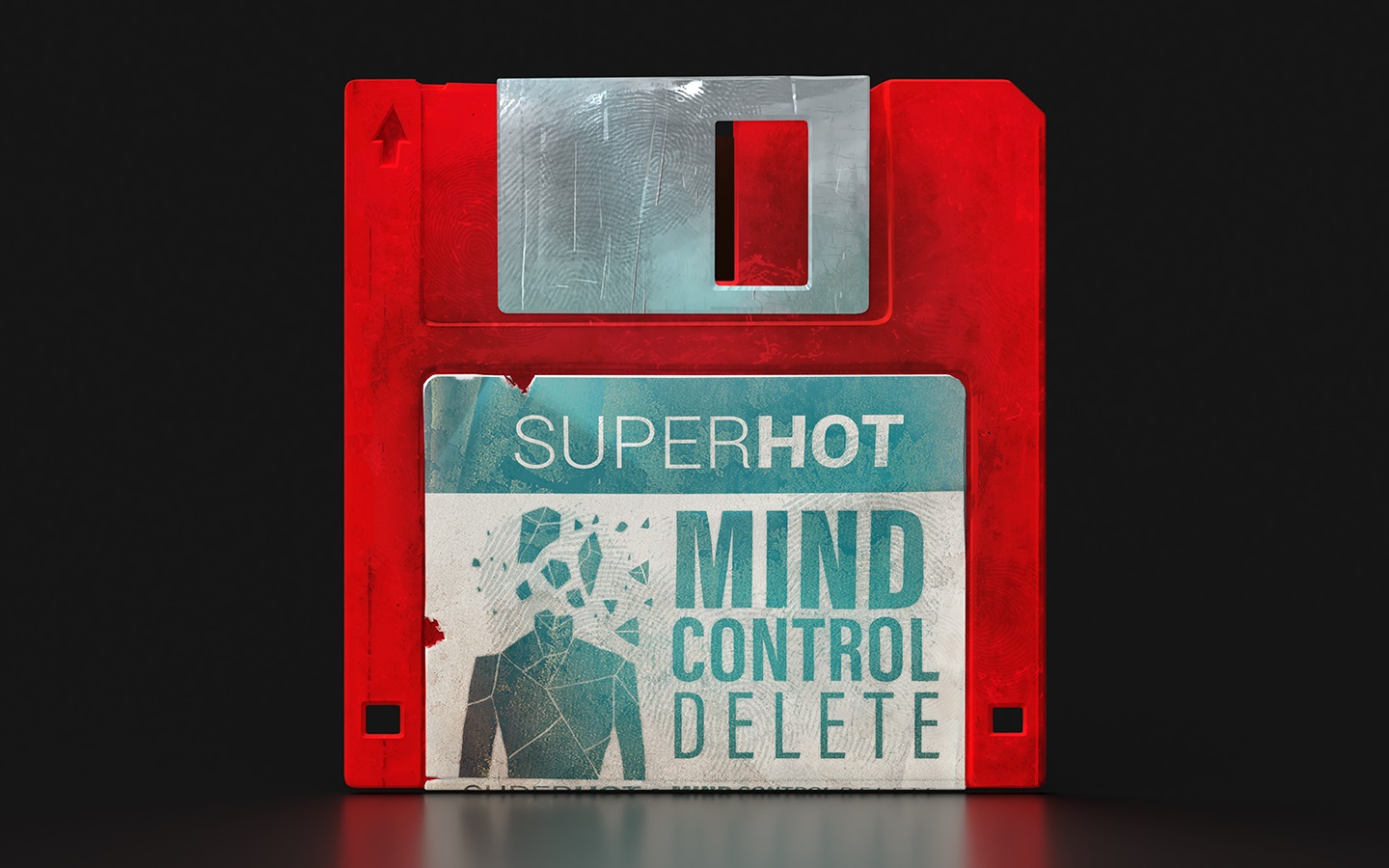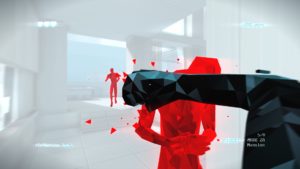

Frenetic, fast-paced, and oddly strategic, Superhot as a series reached a unique status with its distinctive take on the FPS genre. Released in 2016, Superhot’s basic principle was similar to a traditional shooter, but eventually paired directly to your movement. The minimalist approach and aesthetic was a real standout in not only the PC world, but also in the emerging VR landscape. Fast forward to today, and we have the standalone expansion of the original Superhot, SUPERHOT: MIND CONTROL DELETE. Whether it’s the gameplay, story, or visual aesthetics, this game pushes for “more,” which is sometimes for the better and, other times, not so much.
SUPERHOT: MIND CONTROL DELETE adds some rogue-like elements to alter and extend the experience. You are now presented with a heart gauge and a series of randomly generated levels to each centralized node. The new objective is not to solve the level perfectly with what’s presented, but to adapt to the procedurally generated levels with randomly occurring hacks and cores available. These hacks and cores can be anything from increased speed, items exploding on impact, or basically whatever cheat code you can imagine.
These alterations in the name of “more” have transformed Superhot’s base gameplay-loop experience. The original Superhot was not unlike Punch Out! — while it has the veneer of being one genre (FPS), it’s really a puzzle game in disguise. With the procedural generation and randomization in selecting nodes and hacks, you now have a game that leans much more into the chance and action side of things. It’s no longer a premeditated walkthrough to solve each level, but more of a “make do with what’s available” approach. This gameplay change smoothes things out, because you’re going to be facing a lot of the same scenarios over and over again.
Repetition is honestly how SUPERHOT: MIND CONTROL DELETE builds itself up. You face the same levels and scenarios multiple times instead of the quick-fail state system of the original. The game only makes slight alterations to its enemies in each node (weapons, vulnerabilities, aggressiveness). It’s a great way of progressing things without spiking the difficulty. That being said, the repetition eventually hits a certain level of mundane that detracts from the experience a bit. This isn’t helped by the minimalist graphics and aesthetics.

Now, I think that the style of the game is top-notch, but from a functional perspective, the overly sterile atmosphere gives a certain samey, sanitized feel to everything. This isn’t inherently wrong, but a lack of contrast certainly blurs things. There are little flecks, like the throwable handle on the slot machines in the casino level, but it’s a bit few and far in between. After going through a bunch of levels in a session, it all starts to melt together. From a story perspective, it makes perfect sense, but from a gameplay perspective, it sometimes misses the mark.
Speaking of the story, SUPERHOT: MIND CONTROL DELETE picks up the cryptic and vague narrative of the original, and builds upon the initial story by exploring what “more” means in these sometimes eerie moments. The game achieves a solid balance of telling this story while not getting in the way of the gameplay. There aren’t really moments for exposition dumps or lore building, just moments that are almost voyeuristic. The story works in the sense that it quite literally makes you ask for more.

I can see an argument that the story is a bit too vague, but I think their approach supports the overall atmosphere of SUPERHOT: MIND CONTROL DELETE. If you like the story, you’ll like how it unfolds, and if you don’t, then you won’t have to worry about spending too much time on it. I promised myself I wouldn’t spoil anything (and I won’t), but I’ve seen an angry tide of comments regarding the ending. While it’s a bit annoying, I think it fits with what the Superhot team was trying to go for and shouldn’t stop you from enjoying the game.
One of the major knockbacks of the original Superhot was that it was over too quick and that there simply wasn’t enough content. It was a good problem in the sense that Superhot had an addictive gameplay loop that made people yearn for a sequel. The Superhot team decided to tackle this head-on with more enemies, more weapons, more loops, more levels — and in a way, it’s a great success. SUPERHOT: MIND CONTROL DELETE is more of what made the original so memorable and enjoyable.
Unfortunately, the addition of the rogue-like system has created a bit of a trade-off. Some aspects of the original, unique gameplay invariably get traded in to pad things out. It’s not enough to make SUPERHOT: MIND CONTROL DELETE a poor game by any means. If you’re new to the series, its hooks are worth the price of admission. If you’re familiar with the Superhot universe, this hunt for additional content is welcome but can leave you wanting, well, more.
Reviewed on Playstation 4



